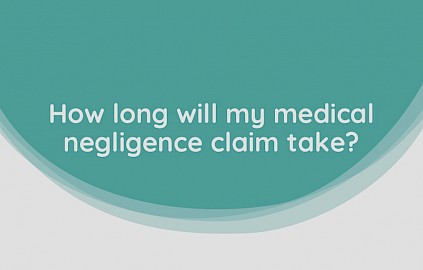Do contact our friendly team of specialist lawyers at Medical Solicitors. We conduct most of our Clinical and Medical Negligence claims under ‘No Win, No Fee’ agreements, also known as Conditional Fee Agreements. So, your clients do not have to worry about how they can pay for bowel cancer claims. You have nothing to lose in speaking to us.
Even if we cannot assist with actual compensation claims for bowel cancer, we always do our best to think ‘outside of the box’ and signpost our clients for other advise and support that might be of benefit to them.
About Bowel Cancer
Bowel cancer does not just affect older people, but it is more common in older patients. Early diagnosis is very important to a good chance of a cure. Delay in diagnosis, sometimes through poor medical care, can be devastating.
See your GP quickly if you are experiencing some of the following symptoms:
- a change in your usual bowel habits, with or without bleeding.
- a feeling of needing to strain to open your bowels, even after having opened your bowels.
- weight loss, pain, tiredness and sometimes breathlessness.
- If your bowel is becoming blocked you may feel bloated and suffer griping pains. You may be constipated, unable to pass wind and suffering from vomiting.
Seeing your GP
Your GP may not want to refer you straight away as some of the above symptoms can be caused by a simple case of piles or infection that may clear up with a course of antibiotics. Your symptoms could be down to dietary factors, such as a gluten sensitivity and may clear up with a simple change in diet. Your GP cannot refer every patient, as some of the above symptoms occur commonly with other health conditions– referring every single patient would clog up the NHS!
However, your GP should consider the possibility of bowel cancer and should take a careful history from you. If your GP does not refer you then your GP should definite plan to see you again to follow you up. If you are suffering from tiredness and even breathlessness, it would be reasonable to ask your GP to request a blood test to check your red blood count as this can fall for reasons other than cancer, but can also fall in cancer cases and cause tiredness and even breathlessness.
If you do not have bleeding from your back passage, but are 50 or older, with pain or weight loss, or under 60 with a change in bowel habit and anaemia, or 60 or older and you have anaemia, then your GP should still offer you a test to check for hidden blood in your poo.
If your symptoms continue after a few weeks of initial treatment, then your GP should reconsider whether you need to be referred and, if not, should continue to follow you up to monitor your progress and consider referral at a later date. Do not let your GP overlook reviewing you and fail to follow up. Be proactive in ensuring you are seen at reasonable, regular intervals. Co-operate with your GP and accept the tests offered, as early diagnosis is crucial for improving cure rates. Test results can provide reassurance as well that cancer is not the culprit!
Referral to a specialist (gastroenterologist)
NICE (the National Institute for Clinical Excellence) have produced Guidelines for when patients should be referred. An urgent 2 weeks referral must be made for patients:
- aged 40 years or more, with unexplained weight loss and tummy (abdominal) pain
- aged 50 or over with unexplained bleeding from the back passage (rectum)
- aged 60 or over with low blood iron levels (iron deficiency anaemia) or changes in bowel habit
- If test results show hidden blood in your poo (stools or faeces)
GPs should consider referring patients urgently if they have a swelling or lump in the abdomen or back passage, or are under 50 years old with bleeding from the back passage as well as any of the following – abdominal pain, a change in bowel habit, weight loss or iron deficiency anaemia
If a patient does not have bleeding from the back passage, a GP should offer a test to check for hidden blood in the poo for patients:
- Aged 50 or more with unexplained abdominal pain or weight loss
- Aged under 60 with changes in bowel habit or iron deficiency anaemia
- Aged 60 or more and have anaemia
Diagnosis and delays
There may already have been delays when a patient arrives at the door of their GP or surgeon, because patient’s find it embarrassing to talk about their bowels and may have ignored their symptoms for some time. However, once you have spoken to your GP and been open about your problems, then if you are suffering from cancer, there should not be too long a period of time before a referral is made and you receive your diagnosis and can start treatment.
Late diagnosis of bowel cancer can deprive a patient of the opportunity to have ‘key-hole’ surgery (laparoscopic) which is by way of smaller cuts in the abdomen, causing less scarring, and leading to a quicker recovery time. A delay may mean that the necessary surgery to remove the cancer is more complicated, because the cancer has grown and an ‘open’ surgery is then required, involving a much larger cut to open the abdomen. Open surgery puts the patient at risk of more complications, scarring and a longer recovery time.
Delay may result in treatment being required that should have been avoided, such as chemotherapy, or radiotherapy.
Delayed diagnosis of bowel cancer may also affect a patient’s chances of being cured, or even mean that the chance of a cure is entirely lost and care can only be offered to improve the patient’s quality of the remainder of their shortened lifespan (‘palliative’ care).











